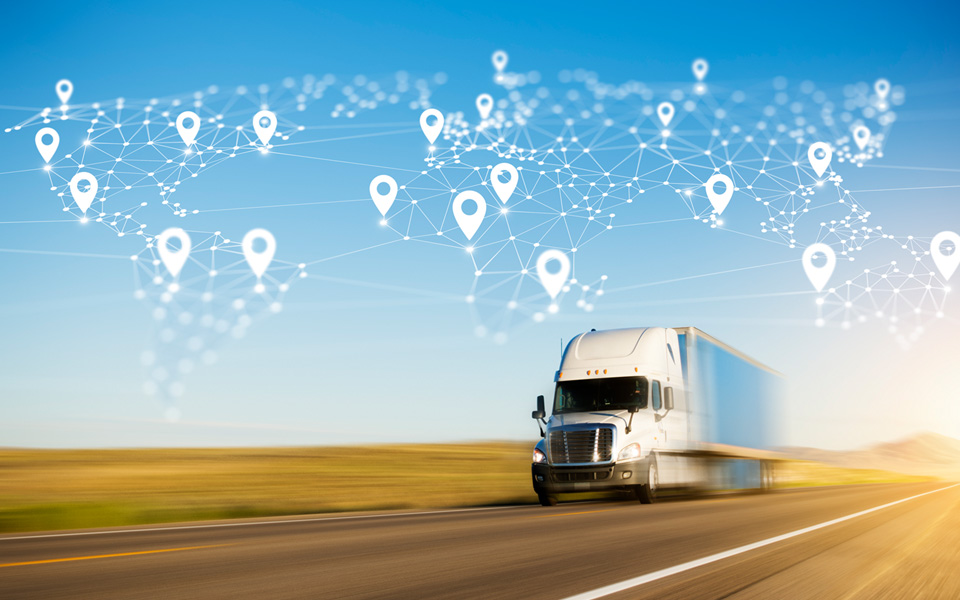*On June 1, 2023 Emerson’s Climate Technologies business became a new standalone company – Copeland. Though our name has changed, we are building on more than a century of HVACR innovation and industry leadership, and Copeland continues to offer the same products, industry stewardship, and learning opportunities you’ve grown to trust. Information found on this webpage posted before June 1, 2023 may contain our old name or branding, but you can be at ease knowing it was created with the knowledge and expertise of Copeland.
Last spring, the COVID-19 pandemic forced supermarkets and other food retailers to adapt their operations on the fly as consumer purchasing behaviors shifted virtually overnight. Commercial refrigeration contractors and manufacturers were also pressed into action to address unprecedented demands for refrigeration and cold storage. Even after life returns to normal, some of the trends that emerged are likely to stick. I recently participated in an executive roundtable for HVACR Business that explored several of the developments that may influence the industry for years to come.

Online retail is here to stay
At the onset of the pandemic, consumer adoption of click-and-collect and home delivery services spiked in response to lockdowns and health concerns. Research suggests consumers will maintain these purchasing habits, even after the pandemic wanes. Retailers are responding by rethinking and upgrading their refrigeration strategies and fulfillment processes to sustain higher volumes over the long term.
At the same time, retailers are exploring and implementing more sophisticated fulfillment models, such as in-store, micro-fulfillment centers (MFCs), dark store conversions and fully automated warehouses. These moves are a natural response to the growth in online grocery retail. But they are also enabling retailers to establish more control over their supply chains by reducing their reliance on third-party logistics providers and food storage warehouses.
Simplicity, certainty and data will become more important than ever
Profit margins and energy management goals increasingly hinge on refrigeration, HVAC and lighting system performance. Pandemic-related lockdowns and social distancing restrictions only underscored the need for remote monitoring of equipment and systems.
As a result, the collective ability to collect, access and analyze data in real time is emerging as a distinct strategic advantage for retailers. By leveraging internet of things (IoT) capabilities and other technologies, operators can optimize equipment performance, protect food safety and quality, improve energy management, and even reduce equipment total cost of ownership (TCO). Technological improvements and economies of scale across the board are making these tools more accessible and affordable, i.e., the race is on to get connected.
At Emerson, we will continue to improve our refrigeration and facility management controllers and supervisory platforms to simplify retail operations and provide superior strategic data insights. The newly launched Lumity™ E3 supervisory control greatly expands upon the widely adopted E2 — adding more power, robust control algorithms, faster speeds, remote connectivity, and an intuitive touch-screen display.
Cold chain monitoring technologies take center stage
All eyes continue to be on the development and distribution of vaccines to fight COVID-19. Vaccine storage requirements — particularly for the Pfizer vaccine, which initially had temperature holding requirements between -80 and -60 °C — presented logistical distribution and storage challenges. News coverage highlighted the role that temperature control technologies play in providing temperature security throughout the cold chain.
We’re proud that Emerson’s temperature control technologies are supporting a network of refrigerated trucks, planes, labs and storage facilities that operate behind the scenes to protect vaccines and the people who rely on them. These same technologies are essential to ensuring the safety and quality of food as it travels from farm to shelf or fork. Watch for more to come in this field as retailers and the public at large gain a wider appreciation for these technologies.
Transition to sustainable refrigerants will gain steam
The transition to refrigerants with lower global warming potential (GWP) and more environmentally friendly refrigeration systems will gain ground in 2021 and beyond. Retailers that shelved remodel and retrofit activities last year are picking up where they left off — especially in California, where proposals mandated by the California Air Resources Board (CARB) will take effect in 2022.
However, regional regulatory complexity in the U.S. will continue to challenge retailers, at least in the short term. Passage of the American Innovation and Manufacturing Act of 2020 (AIM Act) will likely simplify hydrofluorocarbon (HFC) phase-down initiatives. But until then, retailers will need to align their equipment and system choices with regional environmental regulations while trying to anticipate future requirements. Contractors will need to stay abreast of current and proposed regulations to help retailers devise refrigeration strategies that balance regulatory compliance with a wide range of operational priorities and business objectives.
Virtual training firmly established as a viable option for education
Since April 2020, we have offered a variety of free online training courses which will continue through June. Emerson Educational Services has conducted more than 250 instructor-led virtual training sessions for more than 15,000 attendees in the U.S. and Canada. Thousands more have completed self-paced virtual courses. In Latin America, more than 8,000 participants have participated in well over 100 virtual training sessions. We look forward to resuming our comprehensive in-person curriculum as restrictions are lifted, but will continue to build on our virtual and remote learning programs.
Looking to the future, we can state with certainty that our industry will continue to evolve at a rapid clip. At Emerson, we remain committed to building a deeper understanding of the challenges facing our industry. In doing so, we will leverage our commercial refrigeration expertise to create innovative tools and technologies that help our stakeholders to address an ever-expanding spectrum of operational needs.

8 proven strategies for rigorous cold chain management
Preparing for the approval and safe use of A2Ls in commercial refrigeration applications...
Protection for high-value shipments just got even better
We’re excited to announce the release of Copeland’s newest real-time tracker, the GO Real-Time...

Three proven strategies to prevent cargo theft
The over-the-road (OTR) transport industry is experiencing a surge in cargo thefts. As thieves...
